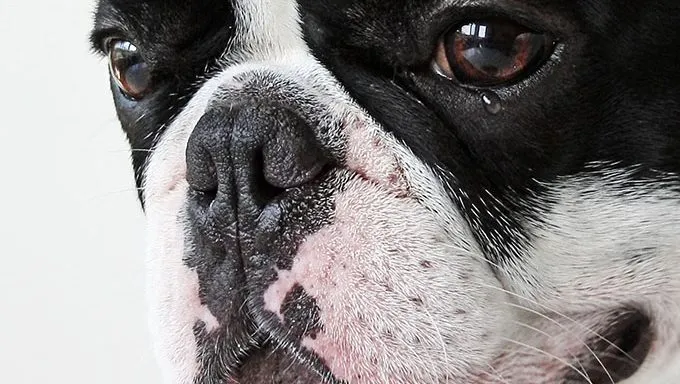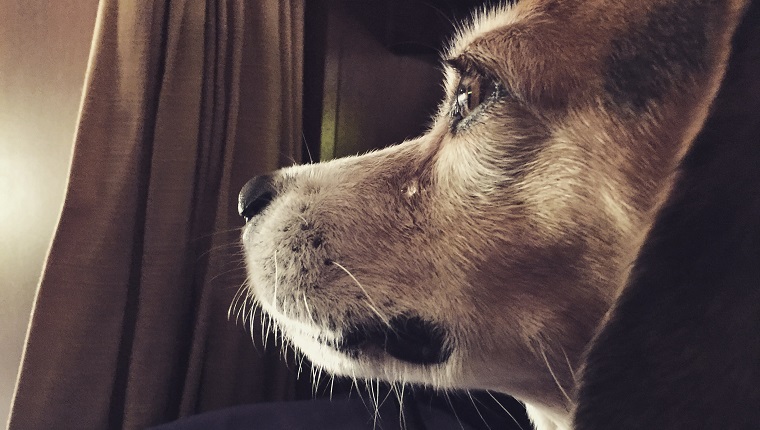We all know that dogs can howl, yip, and whine. But do dogs cry in the same way that we humans do? After all, dogs are incredibly empathetic creatures.
At some point, you may have seen your dog with watery eyes or even seen your dog shed a tear. However, while we humans can cry for emotional reasons, dogs do not. Dogs use other means to express their emotions, such as a happy, wagging tail or sad, pinned back ears.
So what does it mean when you see your dog “crying” actual tears? Here are several reasons why you might see your dog shedding some tears and what they mean.
Allergies

Just like humans, your dog can have allergies that are seasonal or caused by other factors like laundry detergent or food ingredients.
If you suspect that allergies are the reason why your dog is crying, take them to the vet to run some tests that will help you identify and eliminate the allergens.
Other signs of allergies include swelling, hives, sneezing, coughing, inflammation, and more. If you see other signs of allergies, report them to the vet. This will help them narrow down the cause of your dog’s tears and prescribe treatment.
Blocked Tear Ducts

Just like humans, dogs have tear ducts to help keep their eyes functioning and healthy. Unlike humans, whose tear ducts push tears out, dogs’ tear ducts drain the liquid back towards the nasal area of the throat and nose.
If your dog has blocked tear ducts, the tears may drip outwards, like when humans cry. This eye discharge is known as epiphora.
If your dog has epiphora, the fur around their eyes will be damp and can lead to skin irritation or brown, reddish fur circling the eyes.
Bring your dog to the vet if symptoms of blocked tear ducts persists for some time.
Infection

If your dog is crying out yellow, mucus-filled, or bloody tears instead of clear ones, it is a strong indication your dog has an eye infection.
Other symptoms of eye infections include swelling in the eye area or redness in the eye.
If your dog is exhibiting any of these symptoms, it is imperative that you take them to the vet ASAP.
Irritant In The Eye

Another reason your dog may be crying is simply because they have an irritant like dirt or dust in their eye. Gently lift their upper and lower eyelid to check for debris.
In this case, tears should only last as long as it takes to get the speck of dirt or dust out.
Flush the eye with cool water or vet-approved eye wash. If your dog’s eye still shows signs of irritation, get to the vet so they can help.
If you see larger debris or debris that is damaging your dog’s eye, do not try to flush it. Bandage the eye and get to the vet right away. Make sure your dog doesn’t paw at it before you arrive.
A Scratched Cornea

Another reason your dog may cry is because of a scratched cornea. Scratched corneas are more common in active, playful dogs who may have been swiped by another dog during play.
If your dog’s eye is tearing, and they keep pawing at it, take them to the vet to prevent serious vision damage due to a scratched cornea.
Even though your dog doesn’t cry emotionally, they still have ways to express sadness. When dogs experience feelings of pain, frustration, or loss, they show it through vocalizations such as howling, whimpering, and whining. They may also withdraw from activities they normally enjoy.
These are the signs you should watch for if you’re worried about your dog’s emotional well being. Tears, however, indicate a health concern that you should treat appropriately with the help of your vet.
Has your dog ever cried tears? Was it caused by a health issue or eye irritant? Let us know in the comments below!









